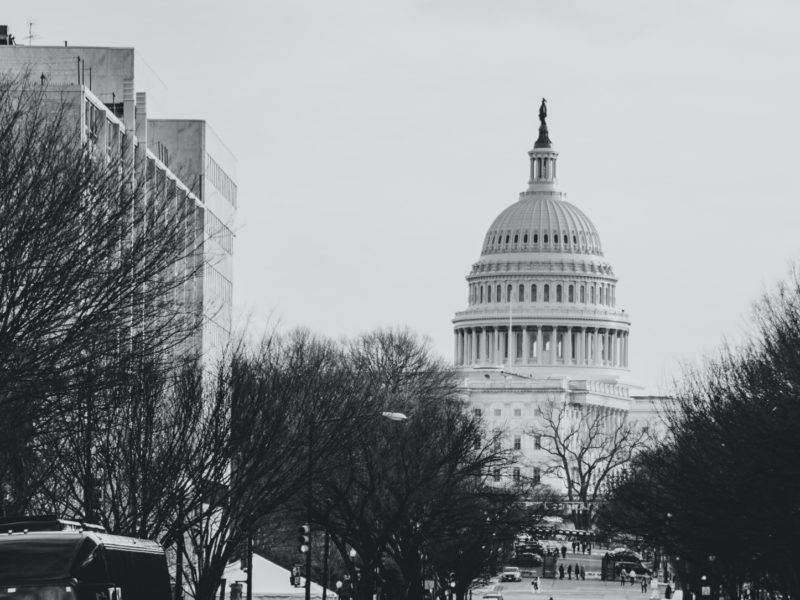The unbridled impunity with which fossil fuel companies and plastics producers greenwash their activities is deeply entrenched. It’s accepted with ignorance or cynical resignation by a nation that lacks robust, centralized climate leadership in tackling a planetary crisis of epic proportions.
Oil producers act with abandon, fueled with cash and no guardrails. To counteract (then-presidential candidate) Biden’s climate plan, for instance, it was only too easy for companies to dip into their vast wallets and release a torrent of misleading ads on social media, touting the benefits of “clean oil” and a fossil fuel-driven America. (For an exhaustive analysis of how Big Oil has permeated every facet of the American political system, Jane Mayer’s Dark Money is a must-read.)
But it’s not just the power of money that ensures industry dominance. Energy companies exert an enormous amount of influence in policy-making at every level of government. One example is the push by corporate interests for lawmakers to support carbon capture policies that will enable continued production while doing little to reduce greenhouse gas emissions.
And let’s not forget the influence that the industry exerts on individual lawmakers, Republicans and Democrats, alike.
Where is the Climate Leadership?

So where is the oversight in curbing this main source of greenhouse gas emissions? Where is the climate leadership in our government to develop meaningful climate policy that holds corporations accountable and keeps them in check?
All too often, it is left to us – consumers, activists, citizens – to lead on climate action and to snuff out the rhetoric and lies.
Despite the David-and-Goliath framework in which climate activists operate, their accomplishments are awe-inspiring: There is the much-publicized termination of the Keystone Pipeline project, a feat that required a decade of relentless protest by numerous environmental groups and local citizens.
More recently, a group of local activists scored a major victory for environmental justice when it successfully delayed the construction of a massive petrochemical complex in St. James Parish, LA, a rural, predominantly poor community. The story has all the ingredients for a blockbuster movie, but the sad reality was that American citizens were unsupported in their battle against a monolithic force. The founder of activist group Rise St. James summed it up when she said, “Nobody took it upon themselves to speak for St. James Parish until we started working to stop Formosa Plastics.”
We are part of a culture that has celebrated the power of individual responsibility while ignoring its various pitfalls. We’re told that the solution to this climate crisis is for us to consume and pollute less. Producers claim they’re simply trying to meet the demand of an insatiable, polluting public, while they’ve done their part by supporting waste reduction programs, like recycling.
To be sure, the environmental disasters we now face call for a collective response from consumers and producers, but accountability is sorely absent from those who’ve been most responsible for creating this mess in the first place. Too little is being done by our government to hold Big Oil’s feet to the fire and force the industry into making a substantive energy transition away from continued fossil fuel development.
This lack of climate leadership is evident within both political parties. Much of what is accomplished, particularly at the federal level, is reactive to external pressures, typically from activist groups and the policy successes of local legislatures.
There’s President Biden, who has made climate action a major part of his administration’s agenda but continues to dither about revoking federal permits for the Line 3 Tar Sands pipeline project and persists in quietly supporting Alaska’s Willow oil drilling project, despite a federal judge’s decision to block it.
Most recently, the Biden administration released a new proposal for offshore drilling in the Gulf of Mexico and Alaska. A shocking reversal of policy from a president who during his presidential campaign had loudly proclaimed: “No more drilling, including offshore, no ability for the oil industry to continue to drill, period.”

Sadly, the exact opposite of regulatory protection exists. Despite the fact that our world is (literally) burning, massive subsidies continue for the chief perpetrators of climate change. The U.S. has increased fossil fuel subsidies since 2015 — a 37% increase.
It doesn’t help that our Supreme Court has bowed to the pressure of the oil and gas industry, hobbling the Environmental Protection Agency‘s ability to regulate greenhouse gas emissions and carbon pollution.
All this equivocating slows a process of energy transition that demands urgency, speed and scale of a magnitude that only the most powerful global actors can achieve.
Weaning Government Off of Corporate Influence
Climate leadership from our representatives and policymakers is critical in accelerating emissions reduction through the formation of a robust regulatory framework to protect citizens and the environment.
Some progress has been made at the state and local levels: Plastic bag laws originated in town halls before trickling upward into state legislatures, while Maine and Oregon have become the first two states to pass Extended Producer Responsibility legislation that forces manufacturers to share the costs of plastic waste reduction. A county in Washington state has demonstrated real leadership by becoming the first jurisdiction in the country to ban new fossil fuel infrastructure and a new California building code designed to reduce natural gas usage could be a model for the country.
These legislative actions help spur other localities and states to follow, but so much more needs to be done, particularly at the federal level, and within federal agencies.
At a minimum, consumers deserve transparency that will severely limit the ability of corporations to greenwash and wantonly influence our elected representatives. More importantly, policymakers must remove fossil fuel subsidies that prop up an industry that needs no propping.
It can’t be done, you say? Well, progress has been made in Europe, where more stringent regulations have in part prompted European fossil fuel companies to diversify out of fossil fuel operations. Europe’s largest oil and gas companies now surpass their US counterparts in renewable energy and other decarbonization investments.
In addition, the governments of Denmark and Costa Rica are striving for climate leadership through the formation of Beyond Oil and Gas Alliance, a group of countries committed to eliminating oil and gas production, and ending permits for new exploration.
Much more needs to be done — and faster — but when one of the major change agents sits on the sidelines, climate action will never progress with the speed and substance that this crisis demands. Varshini Prakash, of the Sunrise Movement, put it best: If Biden really wants to be a world leader on climate, he’ll heed this call and pass the boldest reconciliation bill possible. … Anything less … is ignoring science, ignoring the IPCC report, and failing our generation.”









